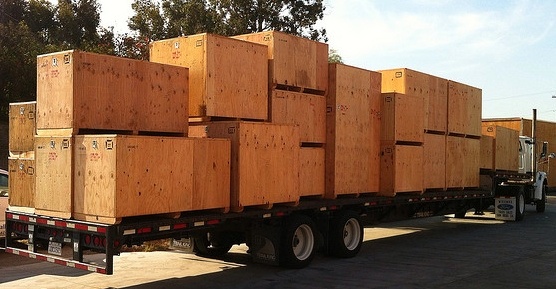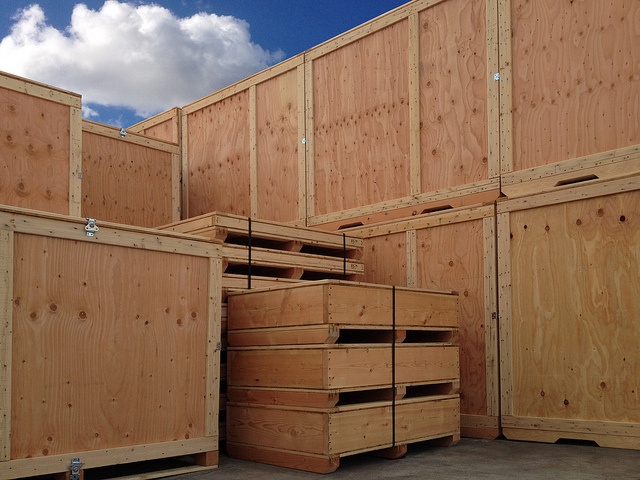
Project manager John Coulson was certain he needed help to organize an unexpected rush shipment of unique construction supplies. The destination, an overseas facility in Germany that his mid-sized manufacturing company had been in the midst of repurposing.
The project was already behind schedule and Mr. Coulson had his hands full coordinating crews and managing employees, all while flying back and forth between the U.S. and Germany in order to coordinate freight management, often three times during any given month.
The problem was, until that moment, Mr. Coulson had never used a freight forwarding service. Sure, he had some ideas about where to start, but the process still seemed particularly daunting and time-consuming.
 Fortunately he remembered Jim Becker at Valley Box, a vendor who built his shipping crates. He figured that Mr. Becker might have had experience with a number of freight management companies in the past. He called him up and the two men chatted about the issue. Mr. Becker said,
Fortunately he remembered Jim Becker at Valley Box, a vendor who built his shipping crates. He figured that Mr. Becker might have had experience with a number of freight management companies in the past. He called him up and the two men chatted about the issue. Mr. Becker said,
“Using a freight management service not only can save a significant amount of time, it can save your company a ton of money too.”
What Mr. Coulson didn't know is that freight forwarding is a good investment. The freight company will handle every single detail of the shipment from start to finish, they have greater access to significant shipping discounts, so the savings get passed along to customer. This means, Mr. Coulson would be able to focus on what he was good at, manufacturing high-quality construction supplies (while keeping costs to a minimum).
Mr. Becker offered a couple of preferred freight management companies GlobalTranz and Allstates WorldCargo, along with several other freight forwarding companies he had done business with in the past. He cautioned that not every referral will turn out to be a good fit and offered Mr. Coulson these 6 tips to find the right freight forwarding company.
1. Ask about experience.
An experienced freight management service will pay a tremendous amount of attention to detail, so your cargo will reach its destination safely and without delay. According to the U.S. Trade Information Center (TIC),
“a forwarder’s extensive knowledge of documentation requirements, regulations, transportation costs and banking practices can greatly ease the exporting process for most companies.”
An experienced freight forwarder will also have the skills needed to handle intense situations that may arise at customs, as well as port shutdowns, strikes, and rerouting situations. Taking it a step further, the most experienced companies are good at avoiding these situations in the first place.
2. Confirm their services offered.
Freight forwarder's offer multiple shipment options such as: LTL (Less-than-Truckload), FTL (Full Truckload), rail, air, and international ocean. Even if you plan to utilize just one transport option, knowing that the forwarder is equipped to handle any option speaks volumes about the company.
Make sure you communicate any special needs you may have like: lift gate trucks, residential pick up, insurance, etc. Other services to look for are up-to-the-minute shipment tracking. The more technologically advanced the tracking system, the better!
3. Note their communications.
How fast did they answer your call? If you had to leave a message, how long did it take to get back to you? Were all communication options (email, chat, office, mobile) available and effective? When you spoke with customer service, were they able to answer all of your questions or locate the right people that could? Were they vague about insurance products? Rates? Services?
If there is a delay with answering any of your questions, or if customer service is tough to reach or they did not spend much time assessing your needs, you have to ask yourself what will happen once your shipment is in their hands?
4. Inquire about their affiliations.
Freight forwarding companies should have a strong network of business partners and agents in the U.S. and overseas, right down to the specific city, both origin and destination. Strong relationships with partners and agents around the world make it easier for your freight forwarder to do an excellent job on all fronts.
It also allows them to offer more services and shows that they have all bases covered. While you may be shipping crates to the Germany today, you might be shipping crates to Brazil tomorrow. Wouldn’t it be great to utilize the same service you have already developed a relationship with?
5. Check their references.
While Mr. Becker certainly seems like a good enough reference because of his experience with shipping crates, but digging a bit deeper for “official” references could reinforce the endorsement even more. Find A+ rated forwarders that are ready to serve you by browsing through a freight forwarding services directory such as the National Customs Brokers and Forwarders Association of America (NCBFFA) or visit the Better Business Bureau (BBB) to find BBB Accredited services.
6. Provide accurate information.
Make sure that you are providing accurate dimensions and weights of your products. Freight is determined on several factors of your product like; class, weight, pick up and destination zip codes, and any additional services required by the customer.




